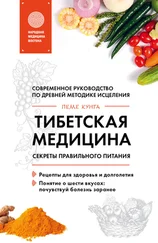Joseph P. Redden and Kelly Haws, «Healthy Satiation: The Role of Decreasing Desire in Effective Self-Control» (October 25, 2012).
Nicholas Carr, «The Shallow: What the Internet Is Doing to Our Brains» (New York: Norton, 2011).
Larry D. Rosen, L. Mark Carrier, and Nancy A. Cheever, «Facebook and Texting Made Me Do It: Media-Induced Task-Switching While Studying», Computers in Human Behavior 29, no. 3 (May 2013): 948–58, doi:10.1016/j.chb.2012.12.001.
Andrew Ward and Traci Mann, «Don't Mind If I Do: Disinhibited Eating under Cognitive Load», Journal of Personality and Social Psychology 78, no. 4 (April 1, 2000): 753–63, doi:10.1037//0022-3514.78.4.753.
Philip G. Zimbardo, «On the Ethics of Intervention in Human Psychological Research: With Special Reference to the Stanford Prison Experiment», Cognition 2, no. 2 (January 1973): 243–56.
J. Polivy and C. P. Herman, «Effects of Alcohol on Eating Behavior: Influence of Mood and Perceived Intoxication», Journal of Abnormal Psychology 85, no. 6 (December 1976): 601–6.
Эта идея была предложена профессором Клодом Стилом в работе, посвященной алкогольной миопии. Для ознакомления с исследованием см.: C. M. Steele and R. A. Josephs, «Alcohol Myopia: Its Prized and Dangerous Effects», American Psychologist 45, no. 8 (August 1990): 921–33.
К тому же мы обязаны объяснять наш обман университетской комиссии и доказывать ей, что мы лжем испытуемым минимально.
Для ознакомления с классическим примером см.: C. Peter Herman and Deborah Mack, «Restrained and Unrestrained Eating», Journal of Personality 43, no. 4 (December 1975): 647–60, doi:10.1111/j.1467–6494.1975.tb00727.x.
Семь исследований по данной теме можно найти в работе: Greeno and Wing, «Stress-Induced Eating». С тех пор появилось множество трудов, освещающих этот вопрос.
C. Peter Herman and Janet Polivy, «Anxiety, Restraint, and Eating Behavior», Journal of Abnormal Psychology 84, no. 6 (1975): 666–72, doi:10.1037/0021843X.84.6.666.
Два примера можно найти в работе: Elissa Epel et al., «Stress May Add Bite to Appetite in Women: A Laboratory Study of Stress-Induced Cortisol and Eating Behavior», Psychoneuroendocrinology 26, no. 1 (January 2001): 37–49, doi:10.1016/S0306-4530(00)00035-4; Summar Habhab, Jane P. Sheldon, and Roger C. Loeb, «The Relationship between Stress, Dietary Restraint, and Food Preferences in Women», Appetite 52, no. 2 (April 2009): 437–44, doi:10.1016/j.appet.2008.12.006.
J. Cools, D. E. Schotte, and R. J. McNally, «Emotional Arousal and Overeating in Restrained Eaters», Journal of Abnormal Psychology 101, no. 2 (May 1992): 348–51.
A. Janet Tomiyama, Traci Mann, and Lisa Comer, «Triggers of Eating in Everyday Life», Appetite 52, no. 1 (2009): 72–82.
Результаты 83 разных исследований приводятся в работе: Martin S. Hagger et al., «Ego Depletion and the Strength Model of Self-Control: A Meta-Analysis», Psychological Bulletin 136, no. 4 (July 2010): 495–525, doi:10.1037/a0019486.
О первом исследовании этого феномена см.: Roy F. Baumeister et al., «Ego Depletion: Is the Active Self a Limited Resource?», Journal of Personality and Social Psychology 74, no. 5 (1998): 1252–65, doi:10.1037/0022-3514.74.5.1252.
Все данные взяты из работы: Hagger et al., «Ego Depletion and the Strength Model of Self-Control: A Meta-Analysis».
31. О множестве недостатков наличия слишком большого выбора см.: Barry Schwartz, "The Paradox of Choice" (New York: Ecco, 2003) [25].
S. S. Iyengar and M. R. Lepper, «When Choice Is Demotivating: Can One Desire Too Much of a Good Thing?», Journal of Personality and Social Psychology 79, no. 6 (December 2000): 995–1006.
Kathleen D. Vohs et al., «Making Choices Impairs Subsequent Self-Control: A Limited-Resource Account of Decision Making, Self-Regulation, and Active Initiative», Journal of Personality and Social Psychology 94, no. 5 (May 2008): 883–98, doi:10.1037/0022-3514.94.5.883.
Michael Lewis, «Obama's Way», Vanity Fair , 2012.
В качестве примера см.: Roy F. Baumeister and John Tierney, «Willpower: Rediscovering the Greatest Human Strength» (New York: Penguin Books, 2012).
На мой взгляд, упомянутая тема не является первостепенной в перечисляемых далее работах. В описываемых в них исследованиях участников не учили саморегулированию; вместо этого их просили следить за своей осанкой или заняться физическими упражнениями на постоянной основе, а потом доказывали, что испытуемым лучше удавался контроль в какой-нибудь совершенно иной сфере. Более того, методология этих работ довольно запутанная, нужно потратить не один час, чтобы разобраться в ней. M. Muraven, R. F. Baumeister, and D. M. Tice, «Longitudinal Improvement of Self-Regulation Through Practice: Building Self-Control Strength Through Repeated Exercise», Journal of Social Psychology 139, no. 4 (August 1999): 446–57, doi:10.1080/00224549909598404; Megan Oaten and Ken Cheng, «Improved Self-Control: The Benefits of a Regular Program of Academic Study», Basic and Applied Social Psychology 28, no. 1 (April 2006): 1–16, doi:10.1207/s15324834basp2801_1; Megan Oaten and Ken Cheng, «Longitudinal Gains in Self-Regulation from Regular Physical Exercise», British Journal of Health Psychology 11, Pt. 4 (November 2006): 717–33, doi:10.1348/135910706X96481.
37. Эту поговорку я узнала от Денизы де Риддер, исследовательницы самоконтроля из Нидерландов. Поговорка встречается и в гаэльском языке [26].
Для ознакомления с примерами см.: Wilhelm Hofmann et al., «Everyday Temptations: An Experience Sampling Study of Desire, Conflict, and Self-Control», Journal of Personality and Social Psychology 102, no. 6 (June 2012): 1318–35, doi:10.1037/a0026545.
Информация об этом исследовании взята из книги: Keys et al., «The Biology of Human Starvation», vols. 1 and 2.
Читать дальше
Конец ознакомительного отрывка
Купить книгу












